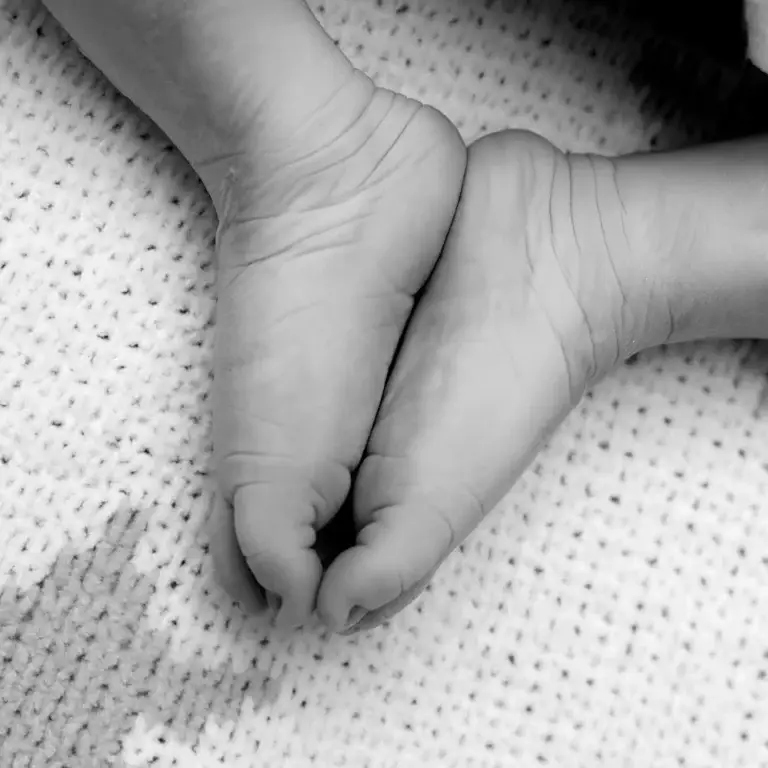For William, becoming a father was more than a milestone—it felt like stepping into a purpose he’d been waiting for his entire life. When he and his wife, Emma, found out they were expecting their first child, the joy was immediate and overwhelming. From the first scan to the soft flutter of kicks, their son, Alex, quickly became the centre of their world.
“I already loved him before I ever saw his face,” William said. “Every time Emma felt him move, I’d place my hand on her belly, trying to feel him too. I’d talk to him about all the things we’d do together—teaching him to ride a bike, cheering him on at football matches, building Lego towers as tall as we could. I couldn’t wait to meet him.”
At 37 weeks, the long-awaited moment finally arrived. Emma went into labour, and they rushed to the hospital, excited and nervous. “It felt surreal,” William recalled. “This was it. The day we’d been waiting for. I kept picturing holding him for the first time, seeing his tiny face, hearing his first cry.”
Labour was long and exhausting, but Emma was incredible. “She was so strong,” William said, pride mixed with awe. “Every contraction, every push—she gave it everything. I kept telling her how amazing she was, even though I was terrified for her.”
When Alex was finally born, William’s heart swelled. “He was beautiful,” William said, his voice trembling. “He had Emma’s nose, my chin, and the softest little hands. I remember thinking, ‘This is my son. I’m his dad.’ But then I realised something was wrong. The room was too quiet. I kept waiting to hear him cry, but it never came.”
The midwife’s face was grim as she gently explained that Alex wasn’t breathing. The medical team worked quickly, but their efforts to resuscitate him were unsuccessful. “It was like the world stopped,” William said, tears in his eyes. “One moment, I was staring at my son, overwhelmed with love, and the next, they were telling me he was gone.”
William held Alex in his arms, feeling a mix of emotions he couldn’t put into words. “I was devastated, but I was also so proud of him,” he said. “He was my boy, and he was perfect. I whispered to him about all the things I’d wanted to do with him, all the dreams we had. I told him how much I loved him, how proud I was to be his dad.”
Emma, exhausted and broken, cradled Alex close, tears streaming down her face. Together, they spent precious hours with him, dressing him in the outfit they had picked out for his first photos and wrapping him in a soft blanket. “Those moments felt like a lifetime and a second all at once,” William said. “We knew we had to say goodbye, but we didn’t want to let him go.”
Leaving the hospital without Alex was a pain William couldn’t describe. “Walking out of those doors, holding Emma’s hand, but not holding him… it broke me,” he said. “I felt like I was failing him as a father. I was supposed to protect him, and I couldn’t.”
At first, William tried to push through the pain by focusing on work. He thought staying busy would help him cope, but the grief lingered. “I’d sit at my desk, staring at the screen, but my mind was always on Alex,” he said. “I’d think about what he would have been doing, how his little laugh might have sounded. The emptiness was unbearable.”
As the weeks turned into months, William’s emotions became harder to control. “I started snapping at people over the smallest things,” he admitted. “I avoided my friends and family because I couldn’t handle their sympathy or their attempts to cheer me up. And worst of all, I pushed Emma away.”
Emma tried to reach him, encouraging him to talk about Alex and how he was feeling, but William shut her out. “Every time she brought up his name, it felt like reopening a wound,” he said. “I wanted to protect her from my pain, but in doing so, I left her to deal with her grief alone.”
One night, after a particularly heated argument, William broke down completely. “I sat on the kitchen floor, crying harder than I ever had,” he said. “I told Emma I didn’t know how to do this, how to be a dad to a baby who wasn’t here. That’s when she said something I’ll never forget: ‘You already are his dad. That doesn’t stop just because he’s gone.’”
Those words became a turning point for William. He realised he couldn’t carry the weight of his grief alone. With Emma’s encouragement, he started therapy, a step that felt foreign and uncomfortable at first. “Sitting in a room with a stranger, talking about my feelings—it wasn’t easy,” he said. “But it was necessary. I needed to face the pain, the guilt, the anger.”
Therapy helped William begin to embrace his role as Alex’s father in a new way. He and Emma created a memory box filled with mementos: Alex’s hospital bracelet, his tiny footprints, and the blanket he had been wrapped in. “That box became my anchor,” William said. “Whenever I miss him, I open it. It’s my way of staying connected to him.”
William also began writing letters to Alex, sharing the dreams they had for him and the things he wished he could say. “Writing to him made me feel like his dad again,” William said. “It reminded me that my love for him didn’t end with his life.”
Now, years later, William has found a sense of peace, though the pain of losing Alex never truly goes away. “I still miss him every single day,” he said. “But I’ve learned that grief doesn’t mean letting go—it means carrying him with me in everything I do.”
Every year on Alex’s birthday, William and Emma light a candle and share stories about the hopes and dreams they had for him. “It’s our way of keeping him close,” William said. “He may not have had the chance to live the life we dreamed for him, but his love has changed us forever.”
Reflecting on his journey, William said, “Alex taught me what it means to love unconditionally. He may not be here, but he’ll always be my son, and I’ll always be his dad. He’s the reason I keep going, the reason I strive to be better every day. His life, though brief, has left a mark that will never fade.”

